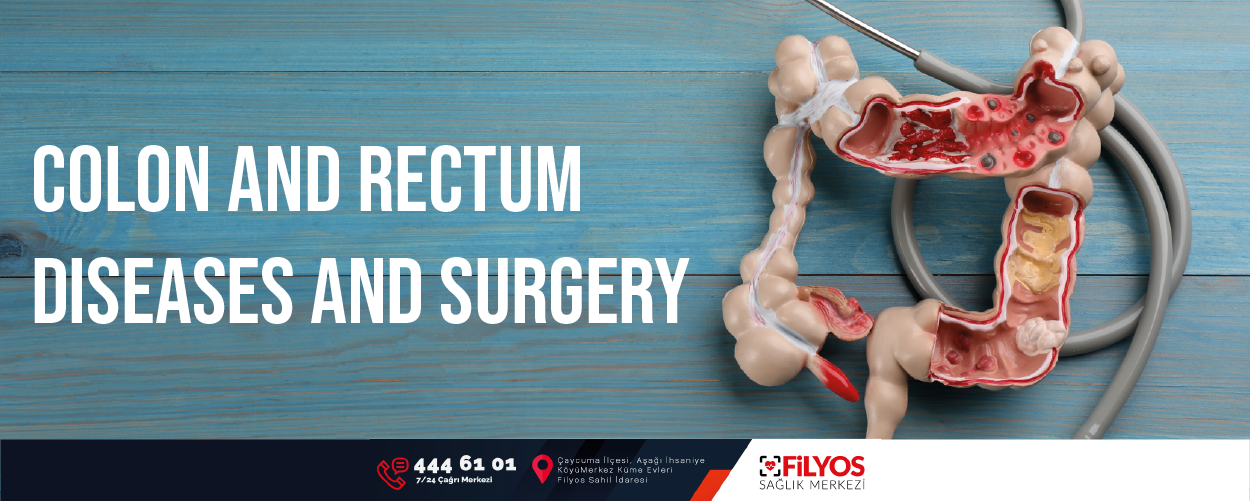
COLON AND RECTUM DISEASES AND SURGERY
Although there are dozens of benign diseases of the large intestine, the most common ones are ulcerative colitis, crohn’s disease, microbial colitis such as dysentery, colon polyps, diverticulosis coli, diverticulitis, irritable (spastic) colon.
All these conditions are followed up with medication.
One of the most important diseases of the large intestine is polyps. These are stalked or broad-based and come in different sizes. Large intestine polyps are precursors of cancer, i.e. cancers develop from them.
For this reason, they must be removed.
The most important disease of the large intestine is cancer.
Patients who present with constipation, weight loss, abdominal pain and bleeding from the rectum should definitely be investigated for cancer. Patients should be examined for this purpose and the stage of the disease should be determined by performing procedures such as colonoscopy, biopsy, whole abdomen tomography, PET-CT.
While patients diagnosed with cancer are treated with surgery, chemotherapy (neoadjuvant td) may be required before surgery for cancers located in the rectum.
Patients diagnosed with cancer should preferably be operated with closed (laparoscopic) surgery method after surgical preparation. In laparoscopic treatments, the duration of hospitalization is reduced and there is less pain and scarring.
Patients with no problems are discharged after 5-7 days of hospitalization after surgery.
After the scars heal, patients are treated and followed up in the oncology clinic.
Chemo-radiotherapy may not be necessary for tumors caught at an early stage.
